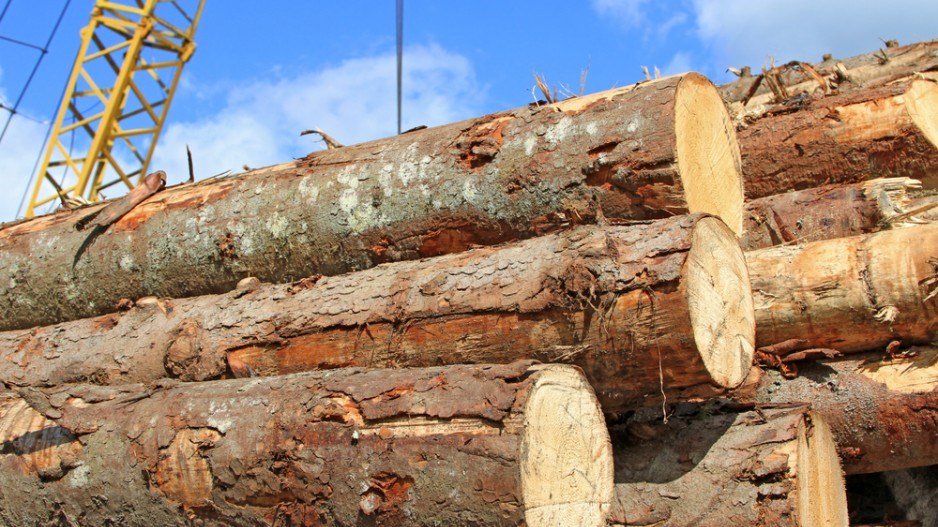A plan by the province to give logging companies more secure access to timber is running into opposition from within the forest industry as well as from advocate groups upset over what they see as an erosion of public rights.
The government is proposing changes that would enable forest companies in the Interior to convert their volume-based forest licences to area-based tree farm licences. It’s a move that the province says is limited in scope to help address the issue of declining timber supplies in the wake of the mountain pine beetle infestation.
But at least one industry leader believes the move is ill advised.
“The risk of aligning the public against B.C.’s largest forest companies outweighs any marginal benefits of expanded area-based tenures,” Canfor (TSX:CFP) president Don Kayne said in a recent blog posting. “We consider it a needless diversion of vital government staff time – and our own staff time – away from higher priorities.”
Canfor’s main rival, West Fraser Timber (TSX:WFT), supports the change.
Former chief forester Jim Snetsinger has been appointed to lead public consultations into the initiative. The first session before an invited audience was to be held April 28 in Smithers. Vancouver is scheduled to be the last stop on May 22. Snetsinger is to present his report to Forests Minister Steve Thomson June 30.
Under area-based tree farm licences, a single company has the right to log exclusively from a specified area, where it is responsible for planning and inventories.
Under the current volume-based system, multiple forest companies have non-exclusive rights to log in one large timber supply area. The beetle infestation has resulted in intense competition for the best remaining timber.
In an April 17 blog posting, Snetsinger explained that one of the benefits of area-based tree farm licences is that they have been shown to foster a long-term interest in sustainability by the licence holder.
They also provide additional certainty to justify capital investments in mills and infrastructure.
“Area-based tenures aren’t a magic solution for the pressures facing B.C.’s timber supply. But the simple truth is that mountain pine beetle is a game-changer in B.C.’s Interior. This discussion is all about trying to create a situation where things are as good as they can be given the circumstances.”
The Council of Forest Industries (COFI), which represents Interior companies, said because its members hold a range of views, some in support and some opposed, it has adopted a neutral, fact-based position.
“There are management circumstances where the short-to-medium-term mountain pine beetle timber supply constraints could be alleviated by it and other circumstances where the tool would be inappropriate to use. The tool has applicability but it is limited,” said COFI vice-president Doug Routledge.
Licensees who apply for area-based tenures would have to convince the province how and why the conversion would mitigate beetle impacts on the timber supply, Routledge said.
Kayne said in his blog posting that the consultation process is neither long enough nor broad enough for a policy change of this magnitude. “Changes of this scope require broadly informed public support, not a brief and limited consultation. On Crown land, the public are our landowners and their opinions should be meaningfully sought and respected. Shortchanging opportunities for public consultation or forcing unwanted tenure reform brings the risk of serious repercussions for our sector.”
Kayne added that the uneven impact of the beetle on the forests, the absence of accurate inventory data and the intense competition for fibre make it more likely that the initiative “will fail in all but the most favourable circumstances. This would unfairly advantage some companies over others. Given the uncertainty regarding the state of our forests, we believe that there are many higher priorities that would yield greater positive impacts.”
Environmental advocate Vicky Husband, a spokeswoman for Commons BC, said the government initiative amounts to privatization of the public timber resource at a time when climate change is affecting the future makeup of the Interior forest.
“We keep the land but give away the forest? There will be a lot of opposition to this.”
Husband added that the limited scope of the tenure consultations is concerning. If the province were genuinely interested in finding out the best way to manage beetle-impacted forests, she said it would hold a full consultation where a number of options could be considered.
Routledge said although there are benefits and issues around the proposals, the concern over privatization is unwarranted. He said the wide range of opinions within COFI, particularly among those who object, shows that within the industry, changing the type of harvesting licence is not considered a giveaway of public resources.




